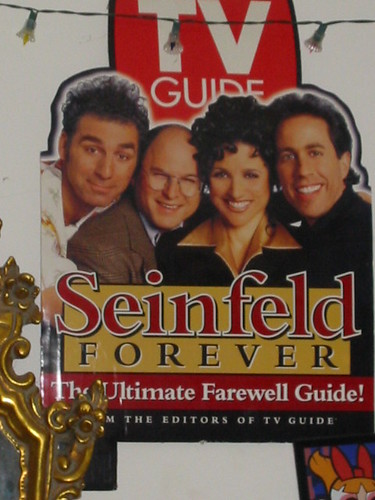Costanza v. Seinfeld, 693 N.Y.S.2d 897 (N.Y. Sup. Ct. 1999).
It could have been a plotline from a Seinfeld episode. Michael Costanza sued Jerry Seinfeld (yes, that Jerry Seinfeld) alleging that the George Costanza character from the TV show was based on him. The proof? Michael Costanza is also fat, bald, and knew Jerry Seinfeld in college. Michael alleged that George Costanza’s “self-centered nature and unreliability . . . are attributed to him and this humiliates him.” He sued under New York’s civil rights law for being cast in a false light, invasion of privacy and defamation. (The defamation part? That was a suit against Larry David who called Michael Costanza
a “flagrant opportunist” with a tenuous connection to Jerry Seinfeld. If this was an episode of Curb Your Enthusiasm, I’d like to think Michael Costanza and Larry David wound up sitting next to each other at a restaurant in L.A. just after this opinion came out.)
The court noted that the New York statute only covers the use of someone’s likeness for trade or advertising, and the fictional character was neither.
To make matters worse for the “real” Costanza, the court imposed sanctions on him for bringing a lawsuit about nothing about a show about nothing.
Bonus: You can learn about the historical origins of New York’s invasion of privacy and false light statutes, involving a law review article by none other than Samuel Warren and Louis Brandeis.

